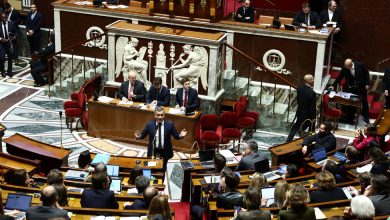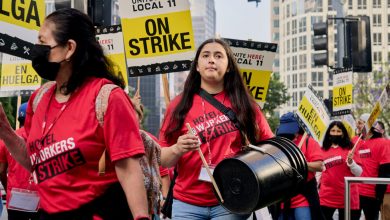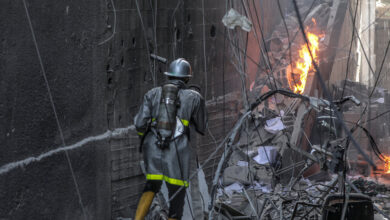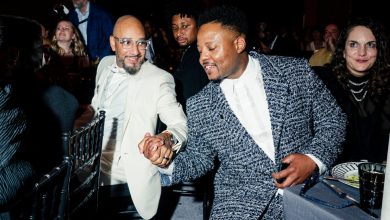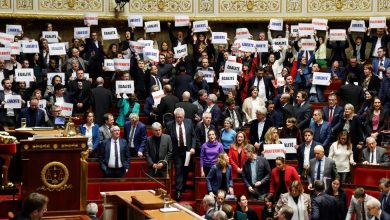Incumbent President Leads in a Congo Election Count Marred by Delays and Protests
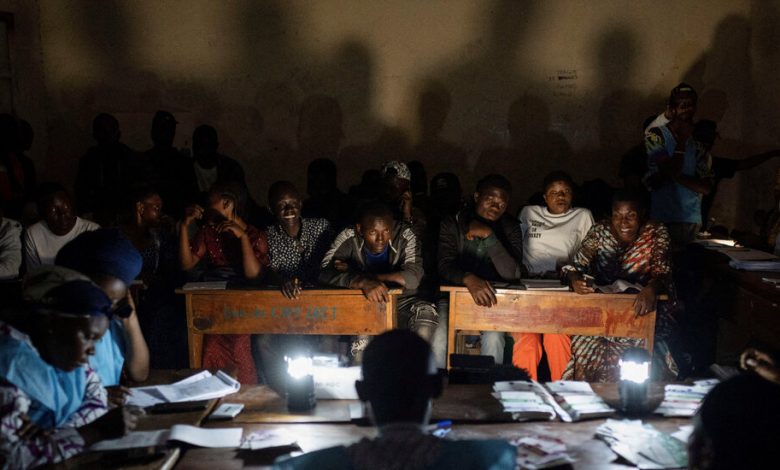
The first results from the Democratic Republic of Congo’s December presidential election showed President Felix Tshisekedi in the lead on Sunday with more than 73 percent of the vote in balloting marred by severe logistical problems, protests and calls for its annulment from several opposition candidates.
The announcement was a critical moment in an election dogged by acute problems — some because of Congo’s vast size, others blamed on haste and disorganization — that many fear could plunge the Central African nation into a new round of political turmoil and even violent unrest, as occurred during most polls in recent years.
The results of the election matter not only to Congo’s 100 million people, who are suffering after decades of conflict and poor governance, but also to Western countries that consider Congo a critical part of their efforts to stem climate change and transition to green energy.
Congo produces 70 percent of the world’s cobalt, a key element in the electric vehicle industry, and has the second-largest rainforest, which absorbs vast amounts of planet-warming carbon dioxide. But for many in Congo, a decades-old, corruption-ridden system of political patronage is seen as the best way to distribute the spoils of that natural wealth — which may explain why the presidential race is being so hotly contested.
Five of the 19 candidates rejected the election process outright, days before any results were announced, calling for the poll to be held again.
On Dec. 23, five opposition leaders accused the country’s electoral commission of “massive fraud,” called on the head of the commission to resign and said the entire vote should be annulled. Four days later, opposition leaders held a demonstration in the capital, Kinshasa, to protest what they called a “sham” election. Security forces surrounded the offices of Martin Fayulu, one of the opposition candidates, and lobbed tear gas at protesters there, according to his spokesman and videos shared on social media.
Opposition leaders, including Moïse Katumbi, a business tycoon who is President Tshisekedi’s closest rival, condemned the actions of security forces and promised more marches nationwide.
Mr. Katumbi got 3 million votes, or about 18 percent of the ballots counted. Mr. Fayulu garnered just over 960,000 votes.
“A point of no return has just been crossed,” Mr. Katumbi said on social media earlier this week. “This first march will be followed by other actions throughout the country. Cheating, fraud and lying will not pass.”
But Mr. Tshisekedi, the incumbent and longstanding favorite to win, repeatedly insisted that the election, which cost more than $1.25 billion to run, was good enough.
Logistical chaos marred the election long before the first votes were cast on Dec. 20. For weeks, election officials had rushed to get materials to 75,000 polling stations across a country the size of Western Europe with few paved roads, in the middle of the rainy season.
Yet just 70 percent of polling stations were open on Election Day, the election commission said, prompting it to extend the voting into a second day. Opposition leaders denounced the extension, claiming that it would facilitate fraud. It also drew criticism from the Roman Catholic and Protestant Churches, which enjoy broad public support across Congolese society and which run a network of electoral observers; the churches said the move violated the country’s electoral laws and was unconstitutional.
Voting even continued on Dec. 22 in remote areas including parts of Kwango and Kasai Provinces, the Rev. Rigobert Minani, a prominent Catholic campaigner, said in a text message.
The election commission acknowledged the delays but insisted that extending the vote did not undermine its legitimacy.
Just over 18 million people, out of the 44 million registered to vote, cast their ballot, the election commission said on Sunday.
Mr. Tshisekedi, who came to power in 2019 in hotly disputed circumstances, had hoped this election would be an easy victory.
In that vote, unofficial tallies compiled by Catholic and other observers found that another candidate — Martin Fayulu, a former oil executive — had likely won three times as many votes as Mr. Tshisekedi. But after several weeks of political turmoil, Mr. Tshisekedi struck a power-sharing deal with the departing president, Joseph Kabila, who had ruled for 18 years.
That deal crumbled within a year, and since then Mr. Tshisekedi has effectively consolidated his power, gaining popular support by providing free primary education to millions of Congolese children. But has not delivered on two key promises — to bring peace to eastern Congo, where conflict has raged since 1996, and to tackle the country’s notorious reputation for corruption.
Instead, political opponents charge, Mr. Tshisekedi and his extended family have acquired considerable wealth during his time in power.
The United States played a crucial role after Congo’s last election, in December 2018, when it blessed the controversial power-sharing deal between Mr. Tshisekedi and Mr. Kabila. This time, American officials have been at pains to stress that they are not taking sides.
In a statement on Dec. 22, the United States Embassy in Kinshasa noted the logistical problems with the voting and called on Congolese leaders to “exercise restraint” and to peacefully resolve any electoral disputes that may follow.
Emma Bubola contributed reporting from London.
